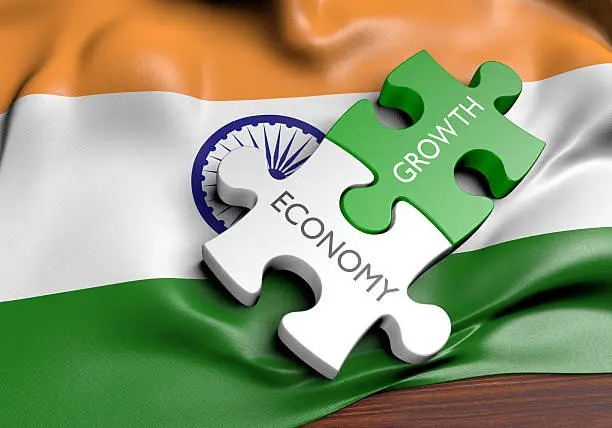



In recent years, India has experienced a significant rise in the number of tech startups, igniting a wave of innovation and transforming the economic landscape. These startups have emerged as key drivers of growth, leveraging technology to create groundbreaking solutions and shape the future of various industries. This article delves into the current landscape of Indian tech startups, factors driving their growth, case studies of disruptive startups, their impact on the Indian economy, challenges faced, government initiatives, successful strategies, future outlook, and more.
The Indian startup ecosystem encompasses a diverse range of industries, including e-commerce, fintech, healthtech, edtech, and more. It is characterized by the presence of both established players and startups seeking to disrupt traditional business models. With the support of accelerators, incubators, and venture capital firms, startups in India are flourishing and attracting global attention.
India boasts several successful tech startups that have made a mark on the global stage. Flipkart, an e-commerce giant, disrupted the retail industry and was acquired by Walmart. OYO, a hospitality startup, revolutionized the budget hotel sector and expanded internationally. Byju's, an edtech platform, transformed the education system with its innovative approach. These success stories inspire countless entrepreneurs and demonstrate the potential of India's startup ecosystem.
Though the Indian startup scene is thriving, entrepreneurs encounter various challenges. Access to capital and funding opportunities can be limited for early-stage startups. Regulatory hurdles and bureaucracy often hinder the ease of doing business. Furthermore, competition from global giants and addressing local market needs effectively pose additional obstacles. Overcoming these hurdles requires resilience, creativity, and adaptability.

With the advent of affordable smartphones and affordable data plans, internet penetration in India has skyrocketed. This surge in connectivity has created a massive user base, presenting immense opportunities for tech startups. Mobile applications and online services have become integral parts of everyday life, driving the demand for innovative solutions.
The Indian government has recognized the importance of startups for economic growth and has implemented various policies to foster their development. The Startup India campaign, launched in 2016, aims to provide startups with incubation support, funding schemes, and tax benefits. Additionally, simplifying regulations and promoting ease of doing business have been key government initiatives that have fueled the growth of startups.
India is known for its skilled workforce, with a large pool of tech-savvy professionals. The abundance of engineering and management graduates, coupled with the growth of technical education institutes, ensures that startups have access to a talented workforce. This availability of talent acts as a catalyst for innovation and accelerates the growth of tech startups in India.
Investors and venture capitalists are increasingly recognizing the potential of Indian tech startups. The availability of venture capital funds and angel investors has created an ecosystem where startups can secure funding to fuel their growth. In recent years, India has witnessed a surge in startup funding, attracting both domestic and international investors.
Ola, a ride-hailing platform, has transformed the way people commute in India. With its innovative app and user-friendly interface, Ola addressed the traditional challenges of transportation by providing affordable and convenient cab services. Today, Ola handles millions of rides every day, providing employment opportunities for thousands of drivers.
BYJU's, an edtech startup, has disrupted the education sector by combining technology and personalized learning. Their interactive online learning app offers engaging content, helping students grasp complex concepts effectively. With millions of users across India, BYJU's has become the go-to platform for digital education.
Paytm revolutionized the way people in India make payments. By providing a secure and convenient mobile wallet, Paytm enabled cashless transactions, reducing the reliance on physical currency. It quickly gained popularity and expanded its offerings to include bill payments, online shopping, and more, transforming the digital payments landscape in the country.
Zomato, a food delivery and restaurant aggregator platform, has transformed the way people discover and order food. With its extensive database of restaurants and user reviews, Zomato made it easy for customers to find and order food from their favorite eateries. It has become a household name and continues to innovate by introducing new services and features.
PolicyBazaar disrupted the insurance sector by creating an online platform that allows customers to compare and purchase insurance policies. By simplifying the insurance buying process, PolicyBazaar empowered customers with transparency and choice. Today, it is one of the leading online insurance aggregators in India and has expanded its services to include loans and credit cards.

Tech startups have emerged as substantial job creators, offering employment opportunities to millions of skilled professionals. Be it software engineers, data scientists, marketing experts, or customer support executives, startups have opened up a range of roles and contributed significantly to reducing unemployment rates in the country.
The growth of tech startups has a direct impact on India's Gross Domestic Product (GDP). As these startups expand, they generate revenue, pay taxes, and contribute to the overall economic output. With their disruptive business models and innovative solutions, tech startups are playing a vital role in driving economic growth and diversification.
Tech startups in India have played a significant role in empowering women entrepreneurs and breaking gender barriers. Several successful startups, such as Nykaa (beauty e-commerce) and ShopClues (online marketplace), have been founded by women and have inspired countless others to follow suit. By providing equal opportunities and a supportive ecosystem, tech startups are fostering gender equality in entrepreneurship.
Tech startups are at the forefront of innovation, driving technological advancements in various sectors. From artificial intelligence and machine learning to blockchain and augmented reality, startups are pushing the boundaries of what is possible. Their disruptive mindset encourages established industries to innovate and adapt to stay relevant in the face of rapid technological change.
Startups in India often face complex regulatory processes and bureaucratic red tape, leading to delays and increased costs. Streamlining and simplifying regulations would facilitate ease of doing business, enabling startups to focus on innovation and growth.
Access to reliable infrastructure, such as high-speed internet connectivity and robust logistics networks, is crucial for the success of tech startups. While major cities in India have relatively better infrastructure, startups in smaller towns and rural areas often struggle to access the necessary resources.
Although India has a large talent pool, startups often face challenges in finding the right skills to fuel their growth. Skill gaps, especially in emerging technologies, can hinder innovation. Additionally, retaining skilled talent can be a challenge, as startups may struggle to compete with established companies in terms of compensation and benefits.
Indian tech startups face fierce competition from global giants who have entered the Indian market. These giants possess vast resources, market presence, and expertise, making it challenging for startups to carve out a niche. Successful startups must differentiate themselves through innovation and customer-centric approaches to compete effectively.

The Startup India campaign, launched by the Indian government, has played a significant role in promoting entrepreneurship and supporting startups. The campaign has facilitated the ease of doing business by simplifying regulations, providing tax benefits, and establishing incubation centers and funding schemes. This has created a conducive environment for startups to thrive.
The Indian government has introduced various funding schemes and tax benefits to encourage startups. Initiatives like the Fund of Funds for Startups (FFS) have been established to provide startups with access to venture capital funds. Additionally, tax exemptions, such as the exemption of profits for a specified period, incentivize investors and promote startup growth.
To nurture and support startups, the Indian government has established incubation centers and startup support infrastructure across the country. These centers provide mentorship, access to industry experts, and networking opportunities, enabling startups to accelerate their growth and overcome challenges.
Building a culture that encourages innovation and risk-taking is essential for the success of tech startups in India. Entrepreneurs should foster an environment that values curiosity, creativity, and experimentation. This culture allows startups to push boundaries, disrupt industries, and create groundbreaking solutions.
Collaboration and partnerships are vital for the growth of tech startups. Building strong networks with industry experts, investors, and other startups can provide valuable guidance, funding opportunities, and potential customers. Startups that actively seek strategic partnerships often gain a competitive advantage and accelerate their growth trajectory.
Embracing emerging technologies is crucial for startups to stay ahead of the curve. Technologies such as artificial intelligence, blockchain, and the Internet of Things offer immense potential for startups to create innovative solutions and drive industry disruption. By leveraging these technologies, startups can gain a competitive edge and capture new markets.
Understanding and addressing the unique needs of the local market is crucial for startups in India. The diversity of India's population and the varied socio-economic backgrounds of its consumers necessitate localized approaches. Startups that tailor their products, services, and marketing strategies to cater to local preferences and challenges can gain a significant advantage.
The future of tech startups in India looks promising, with several emerging sectors and areas of opportunity. Clean energy, agritech, healthtech, and cybersecurity are among the sectors poised for growth. Startups that focus on these sectors and offer innovative solutions have the potential to drive significant impact and reshape industries.
While the future is bright, tech startups in India will face challenges and concerns. These may include increasing competition, intellectual property protection, evolving regulatory frameworks, and geopolitical uncertainties. Startups must remain agile and proactive to mitigate these challenges effectively.
Indian tech startups are increasingly eyeing international expansion, aiming to tap into global markets. With success stories like Ola and OYO expanding operations overseas, startups are gaining visibility and global recognition. This trend is expected to continue, positioning Indian startups as global players in their respective industries.
Tech startups in India have come a long way, transitioning from dreams to reality. Their disruptive nature, innovative solutions, and contributions to the economy showcase their significant impact. To sustain and further accelerate the growth of tech startups, continued support from the government, investors, and society at large is vital. By nurturing this ecosystem, India can continue to harness the power of technology to shape the future and unlock new possibilities.
Tech startups are entrepreneurial ventures that leverage technology to develop innovative products or services that disrupt existing industries. Unlike traditional businesses, startups focus on rapid growth, scalability, and often aim to solve complex problems through technological advancements.
Several tech startups in India have faced failure due to various reasons, such as poor execution, market saturation, or inability to adapt to changing dynamics. Some notable examples include Stayzilla, a hotel booking platform, and PepperTap, an online grocery delivery service.
Tech startups contribute to social welfare in India by addressing societal challenges and improving accessibility. For example, startups like Swiggy and Dunzo have revolutionized food and grocery delivery services, providing convenience and employment opportunities. Edtech platforms like Unacademy and Simplilearn offer affordable education, empowering individuals to upskill and pursue new career opportunities.
While the government's focus has been primarily on supporting startups in urban centers, initiatives like Digital India and Atal Innovation Mission aim to promote entrepreneurship and innovation in rural areas. These programs help rural startups access funding, mentorship, and infrastructure, fostering entrepreneurship beyond city limits.